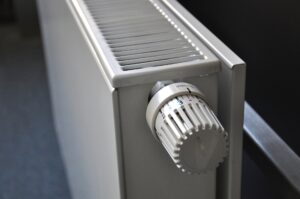 There are many significant chapters in our lives. Marriage, adding a child to your family, and purchasing a home for the first time are all significant steps. These periods can be enjoyable, but they can also cause a great deal of stress. Electrical Heating Expert understands that you might not be familiar with common problems when it comes to electric central heating and wiring in your home. In order to simplify the home buying process, we’ve assembled a checklist that you can use.
There are many significant chapters in our lives. Marriage, adding a child to your family, and purchasing a home for the first time are all significant steps. These periods can be enjoyable, but they can also cause a great deal of stress. Electrical Heating Expert understands that you might not be familiar with common problems when it comes to electric central heating and wiring in your home. In order to simplify the home buying process, we’ve assembled a checklist that you can use.
What Will Your Monthly Utility Costs Be?
You should ask about the standard monthly costs for electricity and gas when you’re viewing a property. You’ll want to include these expenses in your calculation when you’re looking at your budget.
The Home Inspection Process
Before you sign a contract, you’ll want to have your home inspected. In many cases, attractive superficial details like freshly painted walls can conceal dangerous issues. There could be issues with fuse boxes, cabling, heating circuits, or even the property’s water supply. You’ll want to make sure you’re aware of these kinds of issues before it’s too late.
If an experienced electrician surveys the property, they will be able to talk through the survey with you. They can point out potential concerns and offer you advice. A survey can help you to spot problems with a property and can give you peace of mind.
You may want to request an Electrical Installation Condition Report (EICR). This will cover many parts of the home, such as fixtures, fittings, and electrical installations. In addition, an EICR will include:
* Smoke alarms and fire detectors
* Fuse boards and consumer units
* Panel and storage heaters
* Boilers
Who Should Handle Your Property Survey?
If you are having a property surveyed, you’ll want to look for a surveyor that’s a part of a reputable organisation, such as RPSA (Residential Property Surveyors Association) or RICS (Royal Institution of Chartered Surveyors). Both of these organisations offer surveys on different levels which vary in price. You should keep in mind that the kind of survey necessary will vary based on the property being surveyed and how old it is. The cost of a survey will also vary.
What to Remember When Viewing a Home
When you visit properties, there are several steps you’ll want to take to see if the property is up to your standards. If you keep these suggestions in mind, you’ll feel more comfortable about making an offer or deciding if you’re comfortable offering the full asking price. If you notice issues, you may want to reduce the amount you offer.
* Can you see exposed wires?
* Do all of the light switches in the home function properly?
* Have you noticed indicators of mould or condensation? Are there damp areas?
* How many power sockets does the home have? Are their locations convenient?
* Is the boiler noisy? Has it been serviced regularly?
* When was the fuse box checked last? How old is it?
* What is the EPC (energy performance) rating for the property? This will influence your energy costs.
* Is there a conservatory? Will heating be provided, or will you need to invest in an electric radiator?
* Does the property have gas central heating? If not, will an electric radiator be necessary?
* It the home properly insulated? Insulation can reduce energy costs. Excellent insulation can lead to significant savings?
If you want more guidance from the team at Electric Heating Expert, you can contact us online or take a look at our blog. We’d be happy to provide you with the latest tips.